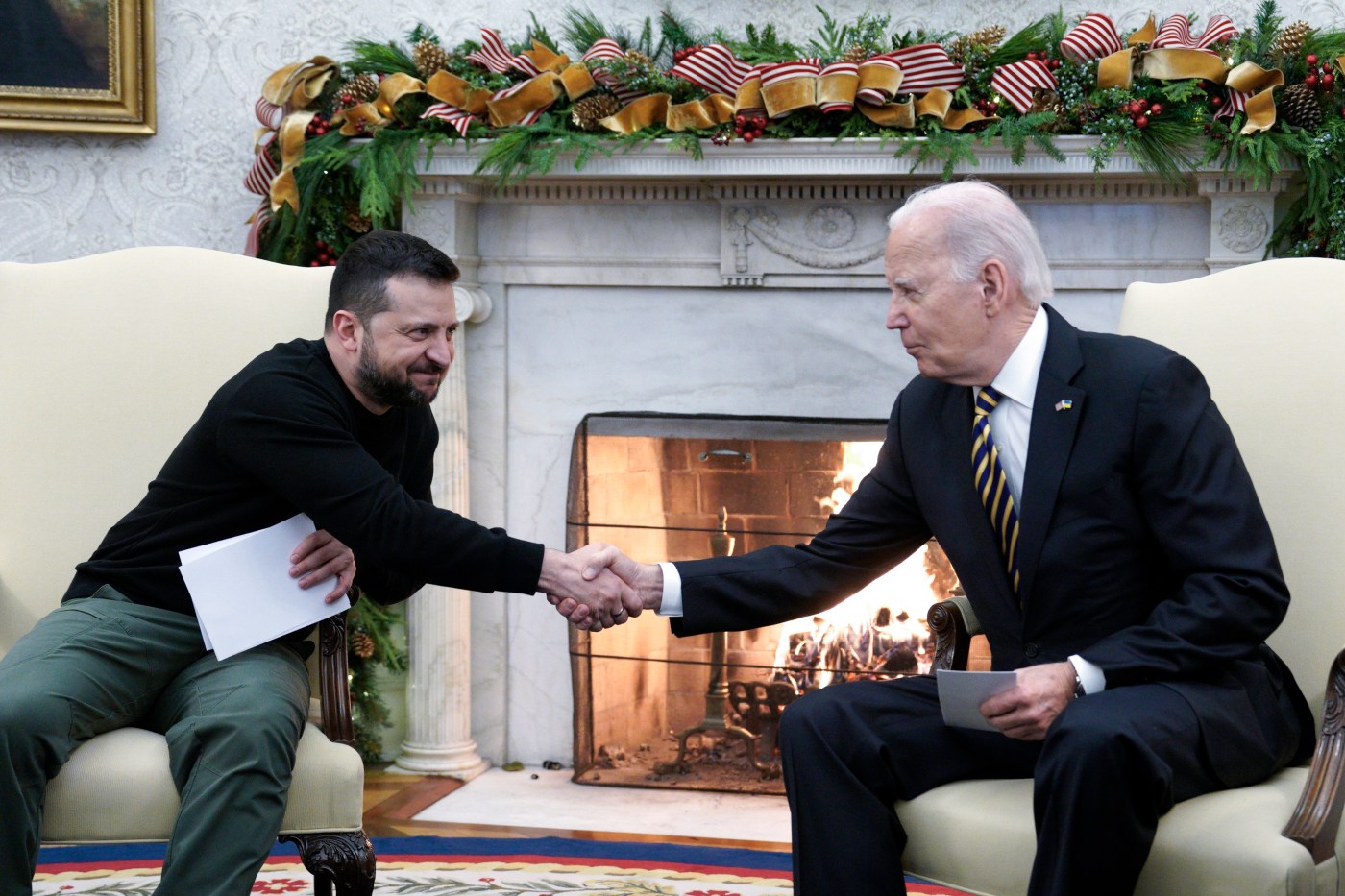
Stigler: Would Reagan abandon Ukraine to Russia?
As the fighting in Ukraine continues, some representatives in Congress, primarily Republicans, oppose additional financial and military support for Ukraine’s resistance to Russia’s ongoing invasion.
U.S. House Speaker Mike Johnson has said he has reservations about continued support for Ukraine because he believes that there is inadequate oversight on how the aid is spent and sees no strategy to win. Johnson also argued that America’s border problems should take priority. Congress will take up the issue again this year, but the future of American aid to Ukraine is in serious doubt.
Four decades ago, a Republican president supported a different victim of Russian aggression, in a situation similar to the one that the United States faces today. When the Soviets invaded Afghanistan in 1979, President Jimmy Carter offered limited aid to the Afghani resistance. But it was a Republican who championed and dramatically expanded funding for the Afghan mujahedeen during most of the nine-year effort to compel a Soviet withdrawal from Afghanistan. That leader was the icon of the GOP, Ronald Reagan.
During Reagan’s first term, the prospects of wearing down the Soviet Union and convincing the Soviet leadership to quit Afghanistan did not look promising. J. Bruce Amstutz’s book “Afghanistan: The First Five Years of Soviet Occupation,” published in 1986 as the Soviet occupation continued, summarized the conventional wisdom of the early 1980s that Moscow could not be pressured to withdraw.
Amstutz, a Foreign Service officer who had been stationed in Kabul from 1977 to 1980, argued that Moscow had invested “Soviet prestige and resources” in the fight for control of Afghanistan and had no intention of departing. The Soviets were set on obtaining the “geopolitical power projection benefits from eventual consolidation of Soviet control.”
Reagan continued and even increased his support for the Afghan resistance for many years. He recognized America’s unique role as a defender of freedom.
Far from relenting after a couple of years, Reagan increased American support in 1987. And Reagan’s determination paid off. The Soviets withdrew from Afghanistan in 1989, a historic superpower defeat that contributed to the end of the Cold War and the dissolution of the Soviet Union in 1991.
American aid to Ukraine since February 2022 greatly exceeds what the U.S. provided to the Afghans in the 1980s. But the geostrategic stakes are much higher as well. In 1980, America merely aspired to take Afghanistan, an impoverished and strategically irrelevant nation, out of the Soviet sphere. Today, American aid to Ukraine is helping prevent a huge Eastern European country of more than 40 million from becoming the first European nation to be conquered since World War II.
If he were alive today, would Reagan be bailing out on the Ukrainians?
Andrew L. Stigler is an associate professor in the National Security Affairs Department of the United States Naval War College. The views expressed are his own and not those of any government department or agency./Tribune News Service


